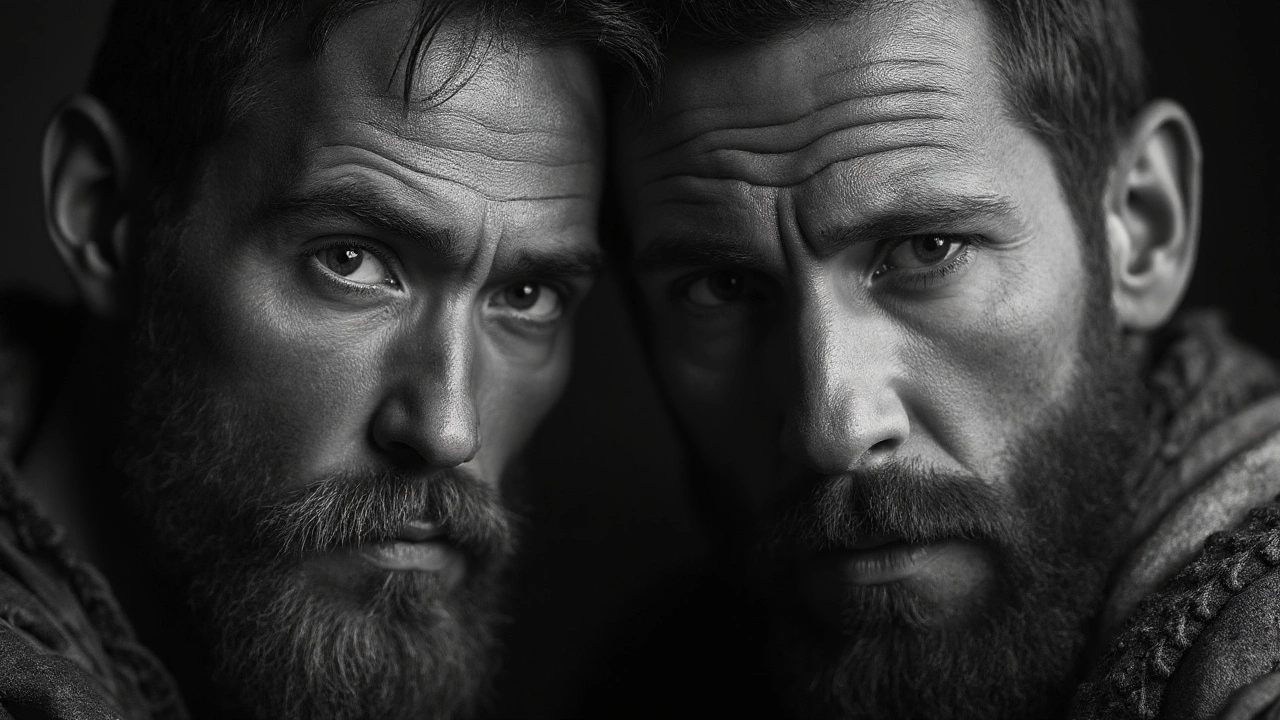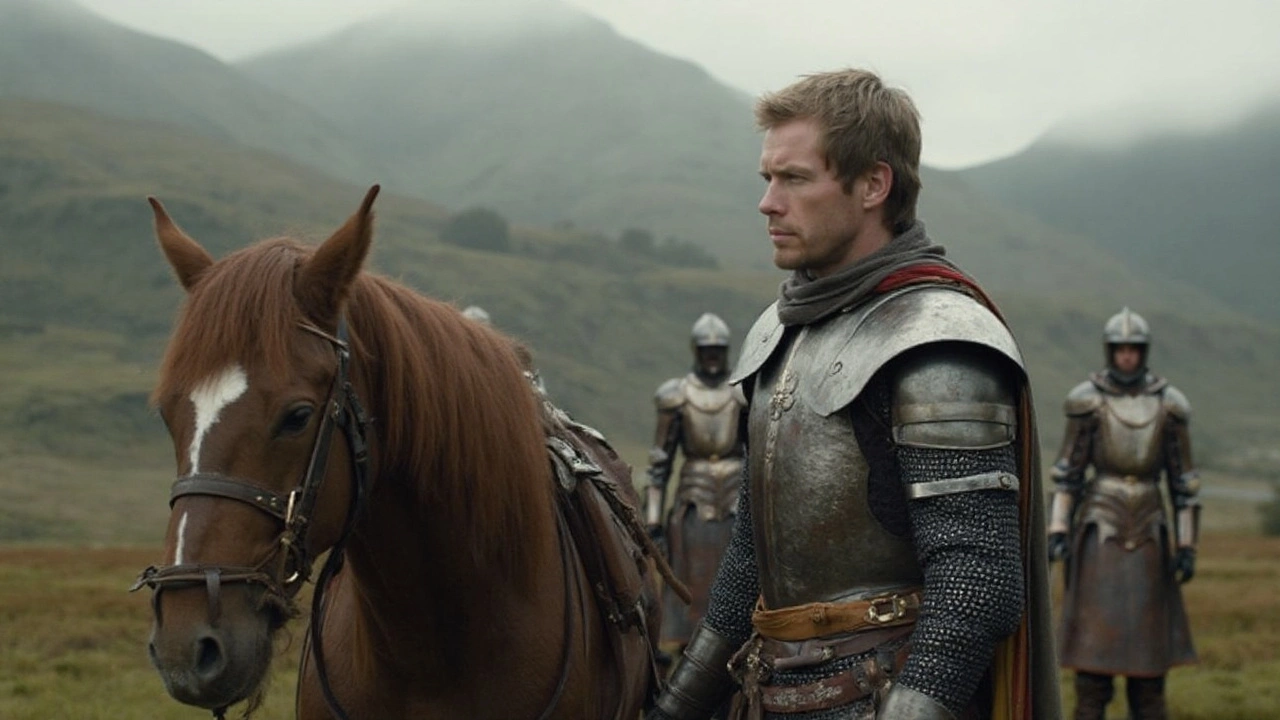Two rivals without spotless claims to the English throne reshaped the language you speak and the laws you live under. That’s the promise pulsing through the BBC’s new historical drama, King & Conqueror, which just unveiled its first full look at the power struggle that detonated in 1066.
The eight-episode series pairs James Norton as Harold Godwinson of Wessex and Nikolaj Coster-Waldau as William of Normandy. Once allies, they become the blunt instruments of fate, dragged into a succession crisis that ends in the mud and blood of the Battle of Hastings. The trailer, released July 24, 2025, goes heavy on steel and smoke—and heavier on ambition.
“Power isn’t given. Power is taken,” one voice warns, as the cut races between oath-taking, council chambers, and cavalry charges. “I am the true king of England,” comes the counterclaim, followed by the stark challenge: “Are you with me or against me?” The rhetoric is clear: this isn’t pageant history; it’s a knife fight.
The BBC is pitching King & Conqueror as a major event drama for 2025, with all episodes set to stream on BBC iPlayer after broadcast. Early signals suggest a broad push to reach viewers who loved grounded medieval sagas and political intrigue as much as battlefield spectacle.
What the trailer shows
The cut opens on a kingdom sitting on a fault line. We see a wary Harold, a calculating William, and the courtly rituals that can barely mask the panic of a looming succession. The visuals favor practical grit: leather, chainmail, and timber halls over polished fantasy sheen. It’s less fairytale, more fallout.
The dialogue slips in a thesis statement: “Power is like a fire. Unchecked, it will destroy everything.” Across two minutes, the footage builds to that famous hill near Hastings—shields up, lances couched, the wind full of arrows. The final beat lands cold: “Where’s the victory? The whole world burns to achieve it.” That line hints at the show’s concern with cost, not just conquest.
James Norton leans into Harold’s burden—the last Anglo-Saxon king forced into choices he can’t win. Coster-Waldau, best known globally for Game of Thrones, cuts an opposite shape as William: tireless, disciplined, certain. If the trailer is a guide, their performances will anchor the political chess as much as the charge lines.
Production design favors mud and texture. Armor is scuffed, banners are wind-torn, and the shorelines feel raw rather than glossy. The battle staging we glimpse avoids crowd-simulation fatigue in favor of grounded scrums: shield walls grinding, horses breaking, commanders trying to see through dust and fear. The camera frequently stays at eye level, a signal this is meant to feel immediate, not mythic.
Tone-wise, the music runs tense and percussive, driving pace rather than bathing everything in choral grandeur. It suits a story where titles are contested and oaths matter more than bloodlines—until they don’t.
One through-line is the pressure of choice. The cut keeps returning to hands: pledges made, swords drawn, letters sealed. The message is simple and grim—legitimacy in this world is a performance backed by force.

The history behind the drama
Why does 1066 still punch above its weight? Because it’s the hinge. Edward the Confessor dies without a clear heir. Harold, the most powerful noble in England, becomes king—fast. William, Duke of Normandy, claims he was promised the throne and that Harold swore an oath to support him. Across the North Sea, others circle, too. The crown becomes a prize, and England becomes a target.
What follows is brutal sequence and bad timing. Harold fights a northern invasion at Stamford Bridge, wins, then has to wheel south to face William’s landing near Hastings. In October 1066, one battle decides who writes the next chapter. The Norman victory doesn’t just swap crowns; it rewires aristocratic power, alters landholding, and eventually fuses languages. Within generations, English sounds different.
That’s the history. The drama lives in everything we can’t know for certain: what was promised, what was sworn, who broke first on the field, and who lied later. Period storytelling thrives in those gaps. Expect the show to mine the disputed oath at Bayeux, the uneasy Godwinson family politics, and the way “legitimacy” can be built from ritual, rumor, and sharp steel.
Early reactions are already splitting along familiar lines. On IMDb, users have the show sitting at 5.9/10 based on hundreds of early reviews and ratings. One criticism doing the rounds targets the portrayal of Edward the Confessor as a weak puppet, arguing the historical record shows a more capable, active ruler who hunted and exercised royal authority. That accuracy-vs-drama fight is baked into the genre. Viewers want gluey politics and clean timelines; historians will point out those rarely coexist.
Still, the audience appetite looks healthy. Since dropping, the trailer has drawn more than 55,000 views across platforms, a solid number for a period series without dragons or wizards to juice the feed. Name recognition helps: Norton’s turns in War & Peace and Grantchester tell you he can carry moral weight; Coster-Waldau brings an edge of ruthlessness without losing the human under it.
The BBC is framing the series as “the epic story of 1066” and “a clash that defined a country, and a continent, for a thousand years.” That’s marketing, sure, but the stakes aren’t inflated. Normans bring different laws, different church ties, and different land systems; the shock ripples through villages and monasteries as much as palaces.
Expect the camera to leave the throne rooms. The trailer flashes peasant faces, campfires, and the hollow look of men who know dawn means marching. Medieval war isn’t just cavalry heroics; it’s logistics, attrition, and fear. If the show sticks with that, it may win over viewers who tire of spotless armor and neatly staged charges.
How close will it stay to the sources? The Bayeux Tapestry gives vivid beats but not interior lives. Chronicles contradict one another, sometimes on basics. The series will have to pick a lane on key flashpoints—did Harold swear? Did William believe he had papal blessing that made his invasion righteous? The trailer hints at a moral argument as much as a military one.
There’s also the question of scale. The Battle of Hastings involves a few thousand men on each side, not a fantasy-sized horde. The teaser suggests the production understands that—dense ranks, not endless armies. It’s a good sign. When period shows inflate numbers, they often lose the claustrophobia that makes medieval combat compelling.
If you’re coming to this story fresh, a cheat sheet helps. Harold is from the most powerful English family of the day, the Godwinsons. William is the relentless Duke across the Channel, forged in civil strife and keen on order. Edward the Confessor is the pious king who dies heirless, opening the door to competing claims. Between those poles are earls, churchmen, and raiders who see opportunity in crisis.
- Format: Eight episodes on the BBC, streaming on BBC iPlayer in 2025.
- Leads: James Norton as Harold Godwinson; Nikolaj Coster-Waldau as William of Normandy.
- Scope: From fragile alliances to the Battle of Hastings, with court intrigue and campaign grit.
- Reception so far: Trailer views above 55,000; early user ratings around 5.9/10 and a debate over historical choices.
The creative line from the trailer is sharp: this is a contest of will as much as title. William’s challenge—“Are you with me or against me?”—isn’t only to nobles on screen; it’s to the audience, asking us to choose an argument about right and rule. Harold’s burden, meanwhile, is to defend a crown that some will always call stolen.
If you’ve watched Vikings or The Last Kingdom, you’ll recognize the appeal: earthy period detail, leaders who make awful choices for reasons that make grim sense, and the long shadow of church and clan. King & Conqueror plants itself in that lane, but swaps out saga sprawl for a contained arc leading to one day that changes everything.
It’s worth noting the challenges. Compressing the prelude to 1066 into a tight run means some players will get less oxygen: Tostig Godwinson’s rebellion, the Norwegian threat under Harald Hardrada, and the political chess inside the English witan could each fill episodes alone. The show will have to decide what to cut and what to underline.
That’s where execution matters more than footnotes. If the writing keeps motives clear and the stakes human—brother against brother, vow against survival—the history will hold. The teaser’s visual language, all tense meetings and trudging columns, suggests a production more interested in cause and consequence than gleaming coronations.
As the countdown to 2025 continues, expect the BBC to roll out more character-driven clips and featurettes to court both history buffs and casual viewers. The pitch is already sharp: two rivals, one crown, and a battle that still lives in schoolbooks. The question now isn’t whether people remember 1066. It’s whether this series can make them feel it.
If you missed it, the King & Conqueror trailer gives you the gist in under two minutes: ambition, betrayal, and the long walk to a hillside where England’s future is decided. The rest will arrive episode by episode, with blood, banners, and the cost of calling yourself king.

Arlen Fitzpatrick
My name is Arlen Fitzpatrick, and I am a sports enthusiast with a passion for soccer. I have spent years studying the intricacies of the game, both as a player and a coach. My expertise in sports has allowed me to analyze matches and predict outcomes with great accuracy. As a writer, I enjoy sharing my knowledge and love for soccer with others, providing insights and engaging stories about the beautiful game. My ultimate goal is to inspire and educate soccer fans, helping them to deepen their understanding and appreciation for the sport.
view all postsWrite a comment